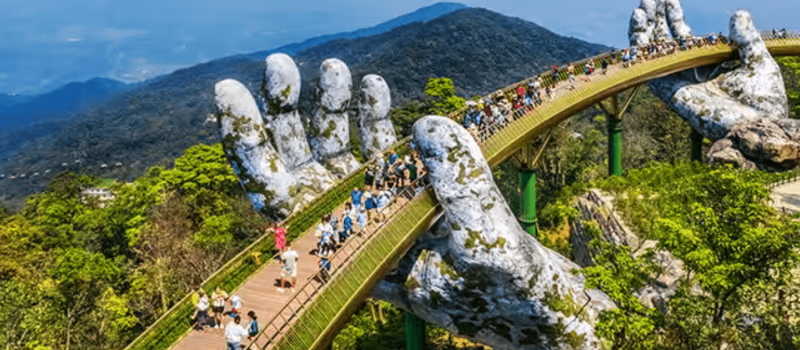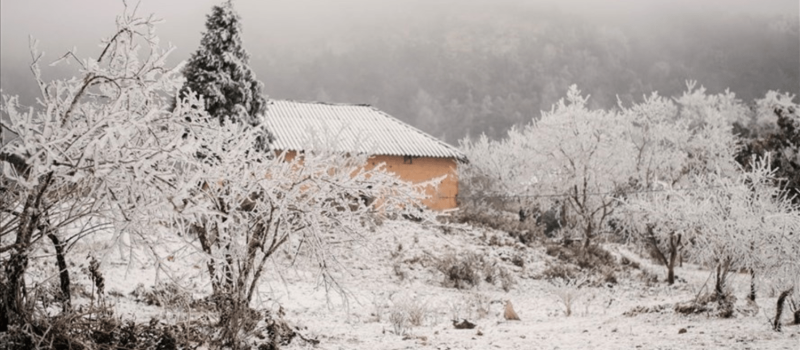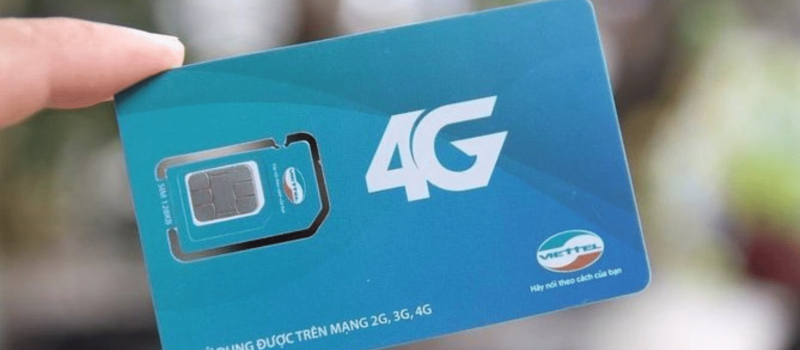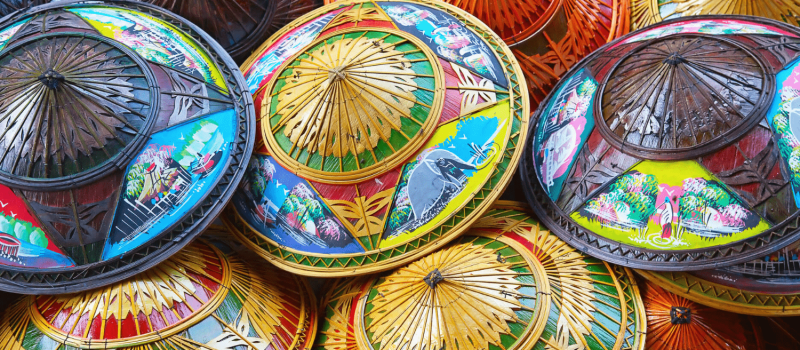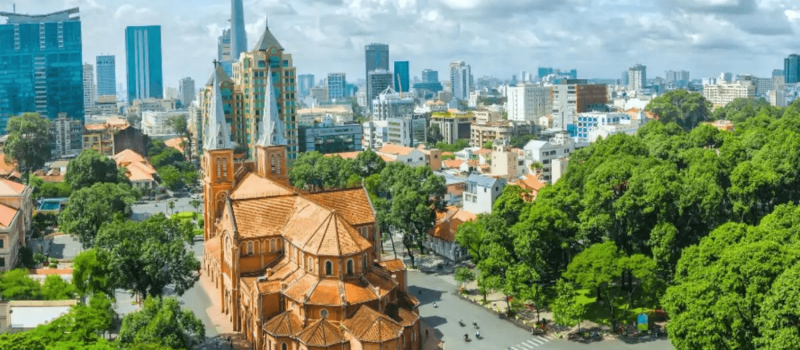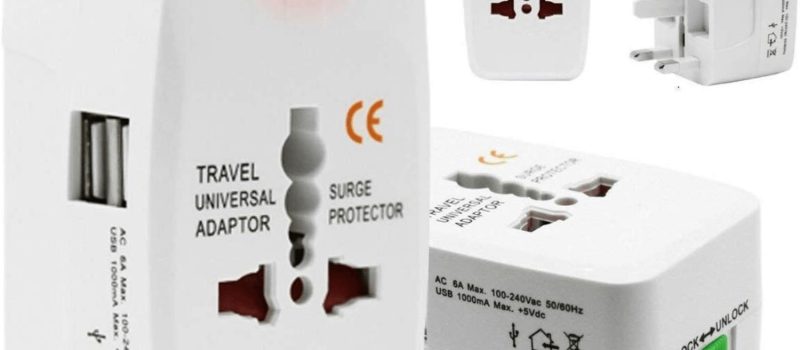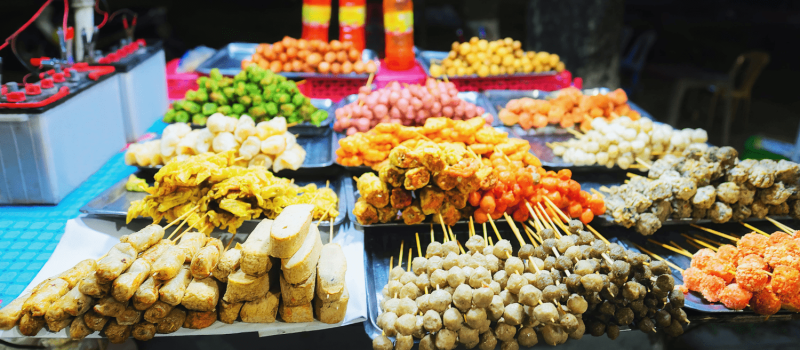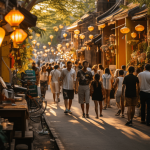Top 20 Vietnam Travel Tips To Keep In Mind Before Your Visit In 2024
Have you ever attempted eating Pho with chopsticks on a busy Hanoi street or navigating Ho Chi Minh City’s maze-like alleys on a scooter? If the answer is ‘not yet,’ then pack your belongings and book one of the Vietnam tour packages for an adventure of a lifetime awaits! The places to visit in Vietnam are endless from the mystical Halong Bay to the bustling streets of Saigon and they’re calling your name.
Now comes the big question: how can you navigate through the vast variety of things to do in Vietnam without getting caught in a fisherman’s net or lost in a lantern-lit street? Don’t worry as this blog is brimming with Vietnam travel tips, all seasoned with a dash of quirkiness and wisdom.
Whether you’re a first-time visitor or a seasoned traveller, these Vietnam travel tips will serve as a reliable guide. But hold on; there’s more! Want to take your adventure to the next level?
Stay with us as we find Vietnam travel tips that will transform your trip into a magnificent adventure. You’ll be dancing in the rice paddies in no time if you follow these Vietnam travel tips!
20 Vietnam Travel Tips To Keep In Mind Before Visiting
1. Consider Travel Insurance:
Travel insurance is frequently regarded as one of the most important Vietnam travel tips for anyone preparing to visit this enthralling country. With so many adventure activities in Vietnam, from kayaking in Vietnam to motorbiking over the country’s mountainous terrain, having a solid insurance policy becomes essential.
It not only covers medical crises, but it also covers unforeseen situations such as travel cancellations or luggage loss.
Engaging in adventure activities without proper insurance could turn an exhilarating experience into a financial burden in case of mishaps. The Vietnam Travel Tips Guide frequently emphasizes the importance of thoroughly understanding what’s included in your insurance policy to ensure it aligns with your travel plans.
By carrying travel insurance, you’re not just safeguarding your trip, but also giving yourself peace of mind to fully immerse in Vietnam’s unique and thrilling offerings.
2. Cash Is King:
Carrying sufficient cash is a golden nugget in the Vietnam Travel Tips Guide. While cities are brimming with ATMs, the remote, picturesque villages and towns might leave you cash-strapped, as they often lack these facilities. You’ll find that the local currency, Vietnamese Dong (VND), is preferred especially in small markets and the hidden gems among the places to shop in Vietnam.
Foreign currencies might not always be accepted, particularly in off-the-beaten path locations. Therefore, it’s wise to have enough VND on hand to savour the rich tapestry of experiences without interruptions. This way, you’re all set to explore the street markets or quaint stores without hassle.
3. Choose The Right Season To Visit:
One of the crowning gems in the Top Vietnam Travel Tips Guide is selecting the best season for your trip. The best time to visit Vietnam is largely determined by the region you intend to visit, as the weather changes from north to south.
From October to April, the northern parts have colder and drier weather, which is ideal for trekking and city tours. The south, on the other hand, has the nicest weather from November to February, when humidity is reduced.
This careful scheduling consideration not only maximizes your comfort but also increases your experience in the different settings Vietnam has to offer. The Top Vietnam Travel Tips Guide emphasizes that travelling during the right season can transform a decent trip into an outstanding adventure. Tailoring your journey to these conditions will ensure that Vietnam’s beautiful scenery and rich culture are fully appreciated!
4. Be Prepared For The Weather:
When travelling to Vietnam, it’s crucial to be prepared for the country’s diverse weather patterns. The climate varies from the North to the South and can be quite distinct across different regions. In the North, winters can be cool, while the southern parts enjoy a tropical climate all year round.
The rainy season typically lasts from May to October characterized by short but heavy showers, particularly in the South.
Travellers are advised to pack lightweight and breathable clothing for the heat, along with waterproof items for sudden downpours. An umbrella, sunscreen, and insect repellent are also must-haves.
Checking local weather forecasts and packing accordingly will ensure a more comfortable experience. Understanding the regional differences in weather can help in planning outdoor activities and travel between cities.
Being prepared for Vietnam’s unique weather patterns allows travellers to embrace all the beauty and culture this enchanting country has to offer.
5. Sort Out Your Visa:
One of the essential travel tips to Vietnam is to sort out your visa well in advance. Depending on your nationality and the purpose of your visit, Vietnam offers different types of visas, so it’s crucial to understand which one is suitable for you.
A popular travel tip to Vietnam is to opt for the e-visa, as it’s available for tourists from over 80 countries and can be processed online. Make sure to fill in all the necessary details accurately and keep scanned copies of the required documents, like your passport, ready.
Processing might take up to three working days, so plan accordingly. Having your visa sorted out prior to your trip not only ensures a smooth entry but also allows you to dive into the rich Vietnamese culture without any administrative headaches.
Always consult the official Vietnamese government website for the most accurate and updated information.
6. Book Your Adventure Activities In Advance:
Top Vietnam Travel Tips often include advice on exploring the nation’s beautiful landscapes, diverse culture, and thrilling outdoor activities. One essential tip is to book your adventure activities in advance, ensuring a hassle-free and enjoyable experience.
Vietnam offers a wide range of adventurous pursuits to indulge in. Among them is rafting in Vietnam, a popular activity allowing tourists to navigate the country’s tumultuous rivers. By booking in advance you can guarantee your spot on a rafting tour led by experienced guides who prioritize safety and fun.
Similarly, scuba diving in Vietnam is a must for ocean enthusiasts. The country’s coastal regions are rich in marine life and stunning coral reefs. Early reservations with a reputable dive shop ensure that you will have access to quality equipment and skilled instructors.
For those who prefer heights over depths, rock climbing in Vietnam is an exhilarating experience. The nation’s dramatic karst landscapes offer the perfect setting for climbing, but joining a well-organized expedition is vital.
In conclusion, advanced booking of these activities not only saves time and prevents disappointment but also assures quality experiences, enhancing your travel adventure in Vietnam.
7. It Is Not Necessary To Tip At Restaurants:
One of the most important travel tips to Vietnam that many travellers may not realize is that tipping is not required. Unlike in certain Western countries, where tipping is commonly anticipated, tipping is not a frequent element of Vietnamese society.
Service employees in restaurants, hotels, and taxis do not normally seek gratuities on top of the payment. However, if you receive great service, a tiny gratuity is always appreciated but never required. This variation in tipping norms will help you budget for your trip and make your experience in Vietnam more authentic to local habits.
8. Adhere To Temple Etiquettes:
Respecting local customs, especially while visiting sacred sites, is an important component to consider when organizing travel tips to Vietnam. Among these sacred sites, Hindu temples in Vietnam stand out for their spiritual value and strict etiquette.
Before entering the temple grounds, visitors must dress modestly, covering their shoulders and knees, and remove their shoes.
Maintaining silence and refraining from public shows of affection are also aspects of decorum. Following these principles promotes a polite experience while also allowing visitors to fully appreciate the peacefulness and cultural richness that these temples provide.
These etiquettes represent the rich past and culture of Vietnam, making the visit more meaningful and rewarding.
9. Get A Local Sim Card:
When visiting Vietnam, one of the most important Vietnam travel tips guide recommendations is getting a local SIM card. This can save you a lot of money on roaming fees while providing you with continuous internet access.
Many travellers opt to get a local SIM card at big airports like Ho Chi Minh City or Hanoi. They are accessible at numerous kiosks and local retailers, with various data and calling options geared to travellers’ needs.
With a local SIM card, you can use maps, book rides, and stay in touch with family and friends, increasing your whole trip experience in Vietnam.
10. Learn A Few Key Vietnamese Phrases:
Here’s one of the essential Vietnam travel tips: learn a few key Vietnamese phrases. Familiarizing yourself with basic expressions like “Xin chào” (Hello) and “Cảm ơn” (Thank you) will not only enhance your travel experience but also help you connect with the local people.
These small efforts in speaking the local language can often lead to more authentic interactions and can be a sign of respect towards the country’s heritage. Vietnam travel tips often emphasize cultural immersion, and what better way to dive into the culture than through language?
As part of your travel tips to Vietnam, consider picking up a phrasebook or using a language app to learn some essential phrases. You’ll find that this simple preparation can make your journey more engaging and rewarding.
11. Bargain While Shopping:
Bargaining is an essential skill to have when visiting local markets in Vietnam, and it’s among the vital Vietnam travel tips for tourists. Many market vendors expect you to negotiate, and it can be part of the cultural experience.
While shopping for souvenirs or local products, don’t hesitate to offer a lower price; it’s often seen as a friendly interaction rather than a confrontation. As part of your travel tips to Vietnam, remember to maintain a polite and cheerful demeanour during the bargaining process.
It is advisable to start at around half the initially quoted price and gradually work up from there. Bargaining not only helps you get a better deal but also provides an opportunity to engage with the local culture and practices. Embrace it with an open mind and you might find it a memorable part of your journey.
12. Don’t Drink The Tap Water:
One key thing to remember is to avoid drinking tap water. The water quality may not meet Western travellers’ expectations and it may include germs or other microbes that can cause stomach upset or more serious health concerns.
It is recommended that you drink bottled or boiled water, which is widely available in most metropolitan and tourist regions. Many hotels and restaurants provide complimentary bottled water, and it is also reasonably priced at local supermarkets.
When ordering drinks, make sure the ice is manufactured from pure water. Using bottled water instead of tap water for brushing your teeth is a safer option.
Following this simple yet essential travel tip can prevent unwanted illnesses and ensure a more enjoyable and worry-free experience during your stay in Vietnam.
13. Explore The Offbeat Spots:
Exploring offbeat spots in Vietnam can lead to a remarkable and unique travel experience, providing a different perspective on the country’s rich culture and breathtaking landscapes.
As part of your Vietnam Travel Tips, venture beyond the usual tourist destinations and explore places like Nha Trang. Known for its pristine beaches and colourful marine life, it’s a haven for underwater enthusiasts.
Venture further south to the Mekong Delta, where you can traverse the maze of waterways and interact with the locals in floating markets. Don’t forget to visit Mui Ne, famous for its stunning sand dunes and coastal winds that are perfect for kites and windsurfing.
These lesser-known locations will enrich your trip, revealing a side of Vietnam that few tourists get to see. Enjoy the serenity and raw beauty, embracing the adventure that comes with exploring these hidden gems.
14. Napkins Are Not Free:
When travelling in Vietnam, an often overlooked aspect that may catch some tourists by surprise is the cost of napkins in restaurants. Unlike in many Western countries, napkins are not always free in Vietnam, and it’s one of those Vietnam Travel Tips-1 must remember when dining out.
Generally, restaurants might charge around 2,000 to 5,000 VND (roughly $0.09 to $0.22) per napkin. This might seem trivial, but it can add up, especially if you’re travelling on a budget or with a large group. It’s advisable to check with the restaurant staff if napkins are complimentary or carry your own to avoid unexpected costs.
Being mindful of this unique practice is a small but essential part of understanding the local culture and customs, ensuring a more comfortable and respectful experience during your Vietnamese journey.
15. Pack The Right Clothes:
Packing the correct clothes is important travel advice when visiting Vietnam. Vietnam’s climate varies from north to south, with various weather patterns, so investigate the precise place and time of year you’ll be visiting.
For the hot and humid climate in the South, lightweight, breathable textiles like cotton or linen are advised. Warmer clothing may be required if visiting northern places such as Hanoi during winter.
Pack garments that protect your shoulders and knees, especially if you’re visiting holy places. Sun hats, sunglasses, and sunscreen are also essential for sun protection. Walking shoes should be comfortable and bring a pair of sandals that are easy to put on and off.
16. Avoid Scams:
Travelling to Vietnam can be a delightful and enriching experience, but like many tourist destinations, it’s not without its risks. Scammers prey on uninformed travellers and being aware of common scams is the first step towards avoiding them.
Taxi Scams: Some taxi drivers may take unnecessarily long routes or have rigged meters. Stick to reputable companies and use metered taxis or ridesharing apps.
Street Vendor Scams: Overcharging is common. Always agree on a price before accepting goods or services. It can be helpful to ask a local for a fair price beforehand.
Motorbike Rental Scams: Sometimes, rented motorbikes are reported as stolen by the rental company, and the traveller is forced to pay a hefty fee. Rent from reputable companies and take photos of the vehicle as proof of its condition.
Fake Travel Agencies: Book tours and tickets through reputable agencies as there are many fake ones offering non-existent services.
Hotel Scams: Some hotels may claim that your reservation is lost and then overcharge for a room. It’s wise to have a printed copy of your booking confirmation.
To avoid these and other scams, thoroughly research standard practices and prices in the area you are visiting. Always trust your instincts, and when in doubt, seek advice from locals or other travellers.
17. Carry A Travel Adapter:
Carrying a travel adapter is an essential Vietnam travel tip that international tourists should not overlook. Vietnam’s power plugs and sockets primarily operate at 220 volts and 50Hz, utilising types A, C, and D.
A travel adapter becomes indispensable if your devices use different plug types or voltages. Without one, charging gadgets such as smartphones, cameras, or laptops may become a significant challenge, leading to unnecessary inconvenience during your journey.
Additionally, considering the variety of socket types nationwide, having a universal travel adapter can be especially handy. Investing in a quality travel adapter with surge protection also ensures the safety of your electronic devices.
By packing this small yet vital accessory, travellers can remain connected and keep their devices powered throughout their Vietnam adventure, thus enhancing their travel experience without worrying about compatibility issues.
18. Don’t Leave Your Valuables On Tables:
When travelling in Vietnam, a vital tip to remember is to never leave your valuables unattended on tables. Vietnam is a beautiful country with a rich cultural heritage, warm locals, and bustling street life.
However, like in many tourist destinations, opportunistic thieves can prey on distracted travellers. Leaving valuables such as smartphones, cameras or wallets on tables in public places like restaurants or cafés can make them an easy target for theft.
Always keep your belongings within sight and reach and consider using a travel pouch or hidden pocket to store essential items. Utilising hotel safes or lockboxes for valuables is also recommended.
By being mindful of your belongings and following these simple precautions, you can enjoy your trip without unnecessary stress or loss, allowing you to immerse yourself in the vibrant Vietnamese experience fully.
19. Be Cautious With The Street Food:
Some essential travel tips to Vietnam include being cautious with street food. While the local cuisine is a must-try, particularly in bustling areas like Ho Chi Minh City, not all street vendors maintain the same hygiene standards.
Your Ho Chi Minh City guide may recommend popular and reputable stalls, but still, it’s wise to observe the preparation process and choose freshly cooked items. As part of your Ha Long Bay guide, you may find advice to opt for restaurants that cater specifically to tourists, providing the authentic taste of Vietnam with lesser risk.
Street food can enrich your Vietnamese experience, but recognizing potential pitfalls and applying common sense can prevent unnecessary illness and ensure a more enjoyable trip.
20. Carry Bug Spray And Mosquito Repellents:
When visiting Vietnam, bring bug spray and mosquito repellents with you. The warm temperature and lush vegetation in several sections of the country make mosquito breeding grounds perfect.
These insects not only sting, but they can also spread diseases like Dengue and Zika virus. Packing a dependable mosquito repellent can make your trip more enjoyable by allowing you to explore the gorgeous scenery without being bothered by insect bites.
Many local markets sell natural repellents created from native substances, but it’s best to bring your preferred brand with you to ensure complete protection. This simple precaution will bring comfort and safety to your trip to Vietnam.
Exploring the vibrant culture and breathtaking landscapes of Vietnam is an unforgettable experience. With these travel tips in hand, you’re well-prepared to immerse yourself in all that this enchanting country has to offer.
From savouring local delicacies to navigating bustling city streets, remember to embrace the adventure with an open heart.
Frequently Asked Questions About Vietnam Travel Tips
1. What is the best time to visit Vietnam?
The best time to visit Vietnam is from November to April during the dry season. Weather varies between regions but these months generally offer cooler temperatures and less rainfall.
2. What should I pack for my trip to Vietnam?
Pack lightweight, breathable clothing, rain gear, sunscreen, mosquito repellent, comfortable footwear, necessary medications, a travel adapter, personal hygiene items, and a hat. Don’t forget important documents like your passport and visa, and consider bringing a small backpack for day trips.
3. Do I need a visa to visit Vietnam?
Yes, most travellers need a visa to visit Vietnam. Requirements vary by country, so it’s advisable to check with the nearest Vietnamese embassy or consulate for specific information related to your nationality.
4. Is it safe to eat street food in Vietnam?
Yes, street food in Vietnam is generally safe to eat and is a significant part of the local culinary experience. However, it’s wise to choose vendors that look clean and are frequented by locals, to minimize the risk of foodborne illnesses.



